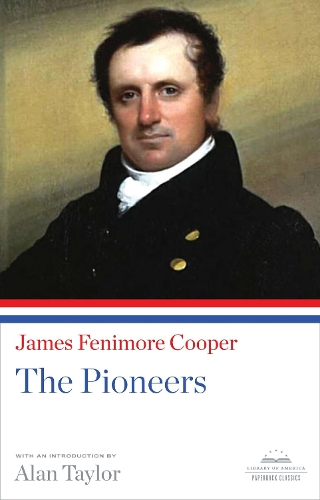
The Pioneers: A Library of America Paperback Classic
(Paperback)
Available Formats
Publishing Details
The Pioneers: A Library of America Paperback Classic
By (Author) James Fenimore Cooper
Introduction by Alan Taylor
The Library of America
The Library of America
19th January 2012
United States
Classifications
General
Fiction
Historical fiction
Adventure / action fiction
Modern and contemporary fiction: literary and general
FIC
Physical Properties
Paperback
512
Width 131mm, Height 202mm, Spine 23mm
467g
Description
The first of Cooper's Leatherstocking Tales, The Pioneers introduces the character of Natty Bumppo, one of literature's most unforgettable heroes, an outsider on the advancing edge of a civilization he can neither abide nor escape. Bumppo makes his first appearance here as an aged hunter living on the fringe of settlement near Templeton (Cooperstown), New York, at the end of the eighteenth century.An introduction by historian Alan Taylor (William Cooper's Town) explores the real historical backdrop against which Cooper's imagination flourished.
Author Bio
James Fenimore Cooper (1789-1851) grew up at Otsego Hall, his father's manorial estate near Lake Otsego in upstate New York. Educated at Yale, he spent five years at sea, as a foremast hand and then as a midshipman in the navy. At thirty he was suddenly plunged into a literary career when his wife challenged his claim that he could write a better book that the English novel he was reading to her. The result was Precaution (1820), a novel of manners. His second book, The Spy (1821), was an immediate success, and with The Pioneers (1823) he began his series of Leatherstocking Tales. By 1826 when The Last of the Mohicans appeared, his standing as a major novelist was clearly established. From 1826 to 1833 Cooper and his family lived and traveled in France, Switzerland, Italy, and Germany. Two of his most successful works, The Prairie and The Red Rover, were published in 1827. He returned to Otsego Hall in 1834, and after a series of relatively unsuccessful books of essays, travel sketches, and history, he returned to fiction - and to Leatherstocking - with The Pathfinder (1840) and The Deerslayer (1841). In his last decade he faced declining popularity brought on in part by his waspish attacks on critics and political opponents. Just before his death in 1851 an edition of his works led to a reappraisal of his fiction and somewhat restored his reputation as the first of American writers. Alan Taylor's books include William Cooper's Town- Power and Persuasion on the Frontier of the Early American Republic, which won the 1996 Pulitzer Prize for history and the Bancroft Prize in American History. He is a professor of history at the University of California at Davis.
